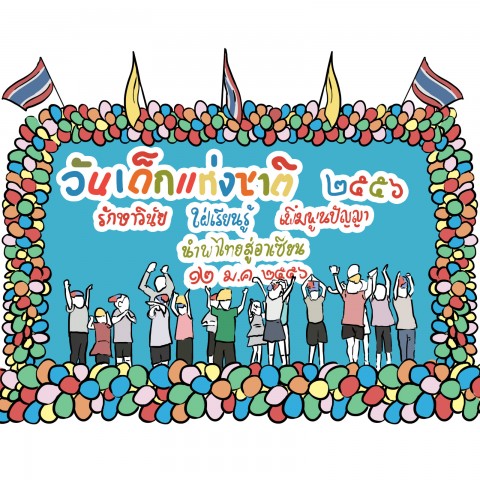
When you’re learning something, a test is considered a part of the learning process. Taking a test shows your current skills and improvements you’ve made in that topic; at the same time, it reveals areas that still need improvement. For Thai learners, taking a Thai competency test is a good idea.
The most popular Thai language proficiency test is the CU-TFL. Thus, in this lesson, we’ll give you practical information about this Thai language competency test, including details about each part and when, where, and how to register to take the test. Of course, we’ll also provide you with some tips on how to pass this Thai exam.
Let’s get started.
 Table of Contents
Table of Contents
- General Information About the CU-TFL
- A Breakdown of Each Section
- Tips on Preparing for a Thai Proficiency Exam
- Conclusion
1. General Information About the CU-TFL

If you want to work in Thailand, you’re in luck! Aside from some professional jobs, most of the jobs available for foreigners don’t require many Thai language skills. Jobs for foreigners in Thailand are normally in environments where workers can speak English. Still, you have a life outside of work, which inevitably requires you to have basic knowledge of the Thai language. As mentioned above, testing your Thai skills enables you to see how much you know so you can continue improving.
The most common Thai language exam for foreigners is the CU-TFL, which stands for “The Chulalongkorn University Proficiency Test of Thai as a Foreign Language.” It’s the most popular Thai language assessment test. For your information, Chulalongkorn University is one of the top three universities in Thailand. In a way, the university’s high status makes the test more reputable.
The test is taken at The Sirindhorn Thai Language Institute. Applicants must contact the institute to schedule the test date (at least two weeks in advance) before filling out the online application. Then, the applicant will receive the bill payment slip, and must make a payment at least three days prior to the test date. The CU-TFL test has four sections: listening, reading, writing, and speaking. This test classifies the examinee into one of five groups: distinguished, superior, advanced, intermediate, and novice.
In the following sections, we’ll provide you with a complete guide on this Thai language proficiency exam.
2. A Breakdown of Each Section
1- Listening Section
Duration: 60 minutes
Number of questions:
- 50 multiple-choice questions
- Part 1: 1-3 announcements and short articles
- Part 2: 2-3 announcements and medium-length articles
- Part 3: 2-3 news excerpts, event descriptions, and documentaries
- Part 4: 1-2 medium-length conversations about opinion expression or an interview of two people
- Part 5: 1 long conversation about opinion expression or an interview of three people
Skills and competencies needed:
- Be able to understand short conversations, announcements, interviews, or advertisements
- Be able to comprehend and summarize a story
- Be able to analyze a story
Instructions:
- You’ll get three sets of paper: the test, a sheet to mark your answers, and paper for note-taking.
- Before the test begins, you’ll hear the explanation, instructions, and be given a sample question.
- Once the test begins, you’ll hear a conversation or story, followed by questions and four choices. You’ll hear the story/conversation, questions, and choices only once.

2- Reading Section
Duration: 60 minutes
Number of questions:
- 50 multiple-choice questions
- Part 1: 1-3 signs and short announcements
- Part 2: 2-3 medium-length announcements
- Part 3: 2-3 news excerpts, event descriptions, medium-length documentaries, or academic articles
- Part 4: 1-2 conversations about opinion expression
- Part 5: 1 news critique, editorial, or academic article
Skills and competencies needed:
- Be able to understand a story, as well as punctuation and numbers used in daily life
- Be able to understand the reference in a story
- Be able to comprehend and summarize a story
- Be able to analyze a story
- Be able to understand the story and analyze it based on knowledge of Thai society and culture
Instructions:
- You’ll get two sets of paper: the test and the answer sheet.
- There’s no time limit for each part, so you can allocate time for the five parts yourself.
3- Writing Section
Duration: 60 minutes
Number of questions: Write one essay to express your opinion on a given topic.
Skills and competencies needed:
- Be able to understand a story, as well as punctuation and numbers used in daily life
- Be able to write as requested
- Be able to spell and punctuate, use vocabulary and sentence structure, and choose the appropriate language level
- Know the types of articles and their structures
- Be able to use proper written Thai with the audience in mind
- Be able to use daily-life idioms
Instructions: You’ll get two sets of paper: the test and the answer sheet.

4- Speaking Section
Duration: 40 minutes
Number of questions:
- An unknown number of questions, divided into three parts
- Part 1: Have conversations with the tester
- Part 2: Report and express your opinion (speak alone)
- Part 3: Interview the tester and summarize information
Skills and competencies needed:
- Be able to pronounce correctly, choose the proper words, idioms, and sentence structures, and respond to the examiner
- Be able to use the right language level for the situation and audience
- Be able to have a fluent conversation
- Be able to express your opinion on various topics
- Be able to ask for information about the assigned topic
- Be able to summarize information
Instructions:
- You will be recorded during the test.
- There will be only one applicant per test.
- The tester is an educated Thai person who uses Thai as their native language.
3. Tips on Preparing for a Thai Proficiency Exam
To do well on any Thai language exam, you need to practice a lot! Below, we’ve outlined a few ways you can do this effectively.
1 – Read signs, announcements, news excerpts, and articles in Thai.
If you live in Thailand, pay attention to the signs, announcements, snippets of news, and articles around you. These are a part of everyday life in Thailand, so they’ll definitely be included on the test. We suggest that whenever you see a sign, you learn what it means and think about where else you might find it. This will significantly help you in the reading and listening sections.

2 – Watch a variety of shows and dramas in Thai.
To improve your listening and speaking skills, you need to be able to understand how Thais speak in daily life. One of the best ways to do so is to watch a variety of Thai shows and dramas. This is a fun activity that allows you to watch media that fits your interests!
You’ll be able to hear the accent of native Thai speakers and become more familiar with Thai sentence structure. This will, in turn, help you improve your own speaking skills.
You’ll also get to know more about Thai society and culture, which will indirectly help you understand more about Thai people, leading to a better test score. Nowadays, you can watch a variety of shows and dramas online on YouTube, on live TV, on Thai Netflix, and more.
3 – Study the basic Thai social norms, and learn about the society and culture.
To do well on your Thai competency test, you need to understand some of the Thai social norms, as well as the society and culture. You can learn about these topics in various ways, such as watching shows (like we mentioned above), talking to Thai people, and reading related books.

4 -Talk to Thai people about various topics.
As mentioned above, talking to Thai people can help you learn about Thai social norms, society, and culture. But the benefits don’t end there! Talking to Thai people will help you learn how to express your opinions more fluently; this will give you a huge advantage when it comes time for the speaking portion of the test. Also, the more you make conversation, the better your speaking and listening skills will become.

5 – Practice writing about different topics in Thai.
To do well in the writing section, you have to practice a lot. On the test, you’ll be asked to write one article that expresses your opinion on a given topic, so you need to practice writing about various topics. In addition, you’ll need to learn related vocabulary and sentence structures to write a good essay.
6 – Do a lot of test exercises.
Last but not least, you need to do a lot of test exercises. Like with every other test, practicing helps you do better. By doing a CU-TFL test sample, you’ll become more familiar with the questions, work on allocating your time better, and finish the real test more efficiently. You can buy a CU-TFL book to do Thai language practice tests, or download the test example from the manual.
4. Conclusion
We hope that after reading this complete guide to the CU-TFL Thai language proficiency test, you have a better idea of how to pass it with flying colors. Please let us know your thoughts about the CU-TFL in the comments, and let us know if you have any questions.
And don’t forget to check out other interesting lessons on ThaiPod101.com. We have tons of lessons on the Thai language, culture, and traditions that you should take a look at! We recommend our lessons about the New Year resolutions of Thai people and talking about family in Thai.










